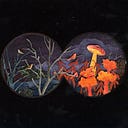The human longing for immortality has transcended cultures and civilizations throughout history. Ancient texts from various traditions offer profound insights and guidance. So, we shall embark on a journey through time and explore some of the most influential texts that delve into the concept of attaining immortality. Join me as we uncover the timeless wisdom and diverse perspectives that these ancient texts provide.
The Upanishads: Unlocking the Inner Divinity (Hinduism)
Within the vast tapestry of Hindu scriptures, the Upanishads stand as pillars of metaphysical wisdom. They delve into the nature of the eternal self (Atman) and the path to liberation (Moksha) from the cycle of birth and death. Through self-realization and the merging of the individual self with the universal consciousness, the Upanishads offer a profound understanding of immortality as the realization of our eternal essence.
The Tao Te Ching: Harmonizing with the Eternal Flow (Daoism)
The Tao Te Ching, attributed to the ancient Chinese sage Laozi, offers insights into the concept of immortality from a Daoist perspective. While not explicitly focused on immortality, this text teaches the importance of aligning oneself with the natural flow of life (Tao) to achieve spiritual harmony and transcend the limitations of mortal existence. Immortality, in this context, is found in embracing the eternal Tao and living in accordance with its principles.
The Tibetan Book of the Dead: Navigating the Cycles of Life and Death (Tibetan Buddhism)
The Tibetan Book of the Dead, a profound text within Tibetan Buddhism, serves as a guide for the journey of the soul after death. It offers teachings and practices to navigate the intermediate state (bardo) and attain liberation from the cycle of rebirth. By following the instructions within this text, practitioners seek enlightenment, ultimately transcending the limitations of mortality and attaining the possibility of eternal life.
The Egyptian Book of the Dead: Unlocking the Mysteries of the Afterlife (Ancient Egyptian Religion)
The Ancient Egyptian religion holds within its texts the fascinating Egyptian Book of the Dead. This collection of funerary texts offers instructions and rituals for the deceased to navigate the afterlife successfully. Through the proper recitation of spells and knowledge of the divine realms, the soul aims to attain immortality and eternal life by awakening to its true nature.
The Epic of Gilgamesh: A Hero’s Journey for Immortality (Mesopotamian Literature)
The Epic of Gilgamesh, an ancient Mesopotamian epic poem, presents the tale of Gilgamesh, a heroic figure on a quest for immortality. Through his adventures, he seeks eternal life but ultimately discovers that true immortality lies in leaving a lasting legacy and making a positive impact on humanity. This epic offers profound lessons on the meaning of life, mortality, and the pursuit of eternal significance.
Greek Mythology and Homeric Epics: Divine Ambrosia and Heroic Pursuits (Ancient Greece)
Greek mythology and the Homeric epics, including the Iliad and the Odyssey, feature tales of gods, heroes, and their quests for immortality. These stories often revolve around the pursuit of divine favor or the mythical substances of Ambrosia and Nectar. While immortality remains elusive for mortal beings, these myths explore the desire for eternal life and the human fascination with transcending the limitations of mortality.
Conclusion:
As we conclude our exploration of these ancient texts, we find a tapestry of diverse perspectives on immortality. From the Upanishads’ emphasis on self-realization and liberation to the Tao Te Ching’s harmony with the eternal flow, and from the Tibetan Book of the Dead’s navigation of the afterlife to the heroic quests of Gilgamesh and Greek mythology, each text offers unique insights and wisdom.
So keep on Exploring……… And Seek what is your’s :)
